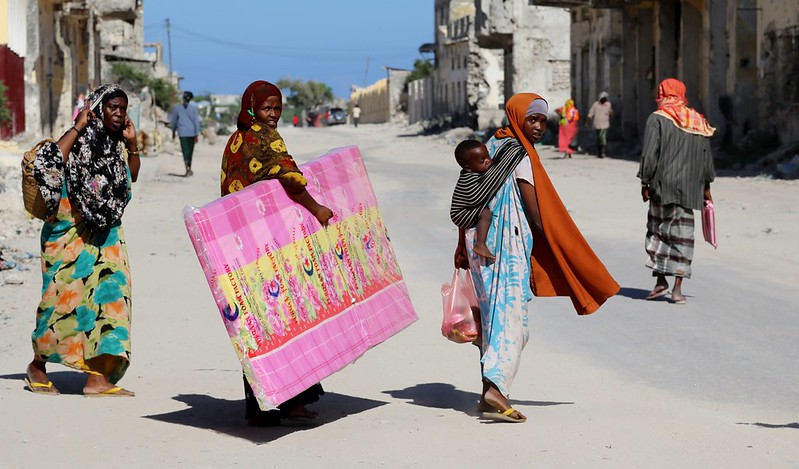Poverty and Mental Health in Djibouti
 In Djibouti, one of the smallest but geographically strategic countries in the Horn of Africa, the relationship between mental health and poverty presents major challenges to individuals and communities. They are interrelated in such a way that economic deprivation increases mental health struggles, while poor mental health transfers them into cycles of poverty. Given this dynamic, it is clear that this challenge needs interventions that approach the issue with substantial social and health care dimensions.
In Djibouti, one of the smallest but geographically strategic countries in the Horn of Africa, the relationship between mental health and poverty presents major challenges to individuals and communities. They are interrelated in such a way that economic deprivation increases mental health struggles, while poor mental health transfers them into cycles of poverty. Given this dynamic, it is clear that this challenge needs interventions that approach the issue with substantial social and health care dimensions.
Understanding the Link
Poverty in Djibouti is pervasive and much of the population lives below the threshold level of subsistence. The economy remains unstable, with scarce educational facilities and high unemployment rates. In such conditions, individuals and families have to endure many stressors emanating from lack of access to basic needs, housing insecurity and food insecurity. Stressors of this nature affect not only physical but also mental health.
According to the World Bank, “Using the lower middle-income poverty line, it is found that about two-fifths of the population lives below $3.20 a day. As the pace of economic growth declines due to the spread of COVID-19, the pace of poverty reduction is under threat.” Mental health problems are among the most common in Djibouti. Yet, they are barely noticed: depression, anxiety and trauma-related disorders. Among other causes, it is underreported and underdiagnosed because of the stigma, cultural beliefs and the lack of mental health professionals.
In addition, the deficit of reachable and affordable services for mental health increases the burden on individuals who already bear the burden of poverty. Organizations like the United Nations Children’s Fund (UNICEF) have led by example. According to the organization, in Africa alone, “nearly 37 million adolescents (aged 10–19) live with a mental disorder.” In Djibouti, UNICEF has found that 10.8% of boys and girls aged 10 to 19 are victims of mental disorders.
Multifaceted Approaches
Therefore, approaches that consider the complex interplay between mental health and poverty are essential. Poverty reduction strategies, in particular, reduce stressors that contribute to poor mental health outcomes. Similarly, improved access to education provides the tools for breaking out of the poverty cycle and enhances resilience against mental health problems. Furthermore, opening job opportunities, particularly for the most disadvantaged, improves economic prospects, builds self-esteem and increases the social integration necessary for better mental health.
In addition, social safety nets, which include cash transfer programs and food assistance schemes, make essential support for vulnerable households less burdensome on the pocket and ensure stability. These poverty reduction interventions could actually prevent risk factors that lead to poor mental health. At the same time, cultural sensitivity in mental health services will be supported by investment in the infrastructure for mental health. This will include training and deploying more mental health professionals, such as psychologists, psychiatrists and counselors, to build a strong workforce in the field of mental health.
De-stigmatizing mental illness will also help develop local support systems, including peer support groups and community health centers, helping mental health services reach unserved, far-flung areas. Therefore, the process has to consider reducing the stigma associated with mental illness. This is basically to ensure that people seek help without much stress or feeling embarrassed. Targeted awareness campaigns to dispel misconceptions and increase mental health literacy can reduce stigma and empower people to seek help openly in their communities. It is equally crucial for partnerships between the government, nonprofit sectors and international partners to share resources and expertise and coordinate efforts.
Combating Stigma and Fostering Collaboration
Reducing stigma around mental illness is the foremost strategy for enhancing help-seeking behavior and early intervention. In this regard, awareness campaigns like UNICEF’s #OnMyMind campaign can challenge misconceptions while improving mental health literacy. This can help lower stigma and increase open dialogue at the community level. Moreover, fostering the collaboration of government agencies, nonprofit organizations and international partnerships is vital to pool resources and expertise and harmonize efforts.
Given the strengths of government institutions, civil society organizations and humanitarian agencies, holistic and sustainable solutions can be devised. This collaboration could, therefore, ensure the elaboration of comprehensive policies on mental health, mobilization of resources for mental health programs and setting up mechanisms for monitoring purposes to ensure accountability.
Conclusion
The intricate relationship between mental health and poverty in Djibouti necessitates integrated and coordinated responses that address the social, economic and health aspects of the issue. Combining efforts to reduce socioeconomic stressors with initiatives to increase mental health services and reduce stigma will facilitate a pathway toward holistic and sustainable solutions for Djibouti. Ultimately, by placing human well-being at the top of the agenda, Djibouti can build resilient communities that succeed both economically and in mental health.
– Honorine Lanka Perera
Honorine is based in Highland, NY, USA and focuses on Good News and Global Health for The Borgen Project.
Photo: Flickr
